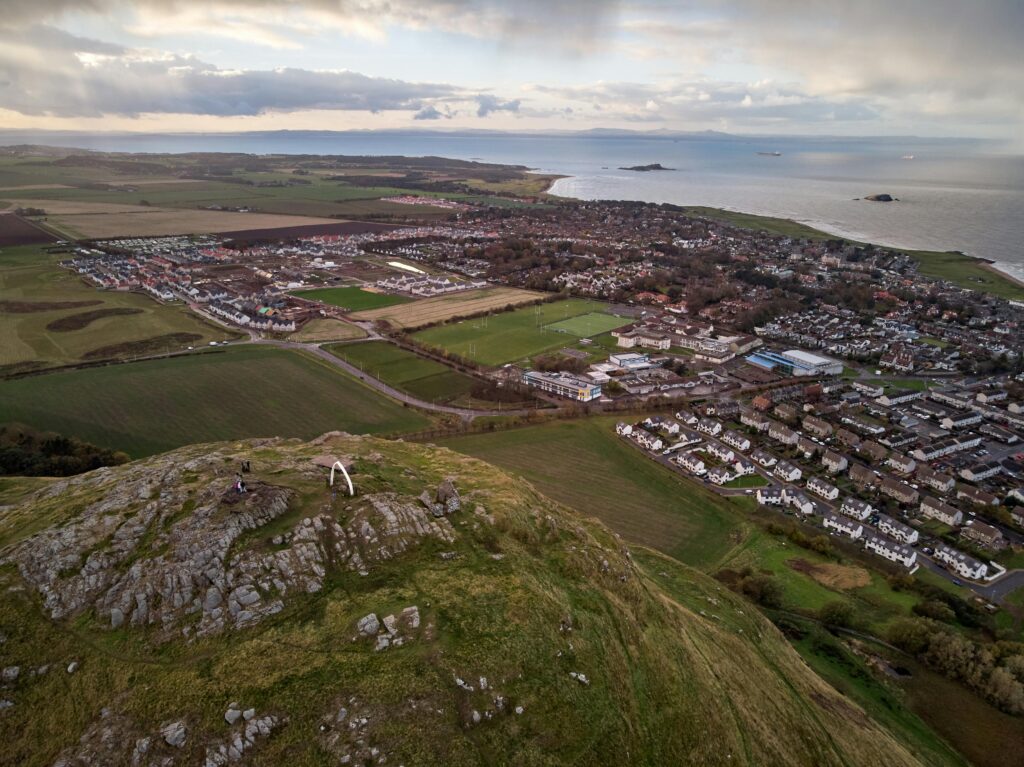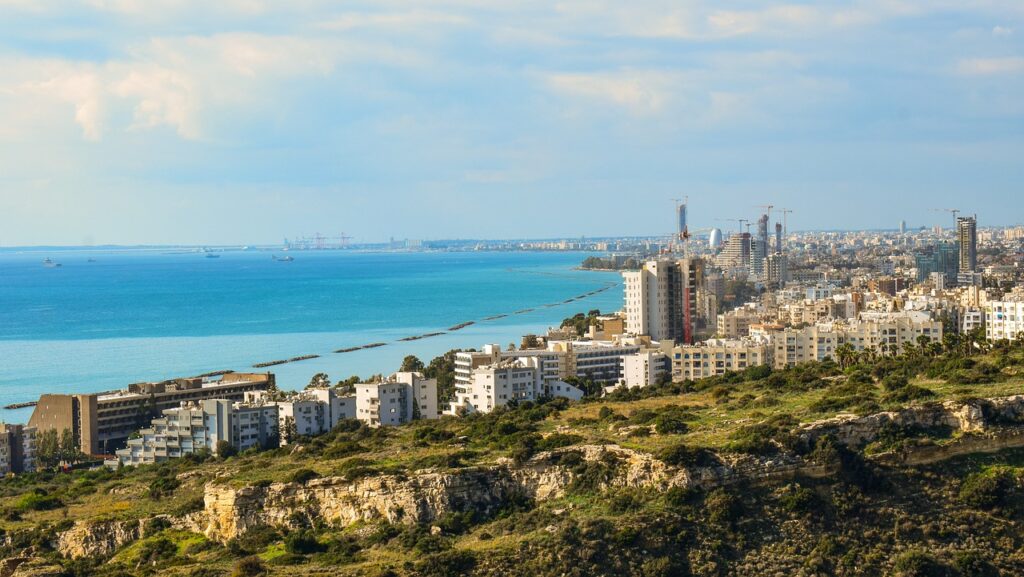Blog
The Best Places in the UK to Move to in 2024

The Sunday Times Best Places to Live list for 2024 has just been released – with places up and down the country being picked for their quality of life with schools, transport links, broadband speeds, culture, green spaces and high streets all forming part of their considerations. Here, Norfolk removal company Hamiltons Removals identifies the main winners, and how we can help you move to all of them.
North Berwick, Scotland
If you are interested in house removals to Scotland, then the resort of North Berwick was the newspaper’s overall winner.
It’s the first Scottish winner in the 12 years the list has been compiled; it scored highly for its beaches, which are crucial to the town’s economy, and the good transport links to Edinburgh.
Wivenhoe, Essex
Closer to our home base in East Anglia, if you are thinking of moving to Essex, then the town of Wivenhoe was chosen as the East of England winner.
The judges praised the welcome it gave to newcomers, its strong artistic community (Wivenhoe has two galleries) and its picturesque nearby scenery, which ensured it was placed above its neighbours in the London commuter belt.
Also mentioned were the town’s seven pubs, the high street (which is full of independent shops) and the attractive architecture.
Norwich and Sheringham, Norfolk
Norfolk’s county town, and the resort of Sheringham, both made the East of England shortlist as well.
The judges noted that Norwich is the only city in the UK which has a national park in its midst – the stretch of the River Wensum which flows through the city is part of the Norfolk Broads.
The city was also praised for its thriving café culture, its cathedral, and its welcoming cosmopolitan nature; Sheringham, meanwhile, was singled out for its Blue Flag beaches which ensured it was one of the North Norfolk coast’s ‘sweet spots’.
Leeds, Yorkshire
Some major UK cities were on the list as well, with the city of Leeds takinh top spot in the North of England category.
Judges noted the fact that it had some of the best paying jobs outside London, boasts not one but five universities, and the fact that it has its own opera, ballet and theatre companies. The city’s shopping offer was another leading feature – including the markets and the Victorian arcades alongside the modern Trinity Leeds development in the city centre.
Abergavenny, Monmouthshire, Wales
Abergavenny took the honour as the best place to live in Wales. Judges mentioned the market, which began in the 13th century and is still thriving today; there’s also a Food Festival in the town which this year is celebrating its silver (25th) anniversary.
The great views offered by the surrounding countryside were also mentioned – the town is on the edge of the Bannau Brycheiniog National Park.
Portstewart, Co Londonderry, Northern Ireland
Portstewart was chosen as the best place to live in Northern Ireland. The town’s community spirit and its beaches were mentioned with particular praise – with the two combining in the form of beach cleans and litterpicks. The judges called it NI’s ‘most graceful seaside town’.
Away from the beach, the local shops, cafes and restaurants were also highlighted.
Moving in the UK with Hamiltons Removals
All these places have another thing in common – Hamiltons Removals can help you move to all of them.
So, if you are interested in removals to Sheringham, Norwich, Leeds, Abergavenny, Wivenhoe, North Berwick or Portstewart, then get in touch. You can either call us on 01379 855203 or you can kick-start the whole removals process by taking one of our online video surveys for a free quote.
Removals to Limassol with Hamiltons Removals

The Cypriot port of Limassol is one of the most popular destinations for expats – particularly British ones, thanks to the combination of sun, sea and sand. Another big draw is the fact that most local residents speak English either as a first or second language. It’s a popular destination for commercial removals too and is a principal hub for international businesses in Cyprus.
Here Hamiltons Removals, who offer commercial and domestic removals to Limassol, take a closer look at the city and how we can help you move there.
The History and Heritage of Limassol
The city has passed through many hands over the centuries – it’s been ruled over by the Phoenicians, Assyrians, Egyptians, and Persians. It was an important strategic stronghold in the Mediterranean and has always been an important trading port since its conception.
Richard the Lionheart conquered the city in 1191 as part of his Third Crusade; the English influence doesn’t end there, as Limassol was leased to the British Empire in 1878. However, the country of Cyprus gained independence from Britain in 1960 – although most people there still speak English.
Limassol is the second largest city in the country (after Nicosia, the capital), and has a population nearing the 200,000 mark. As Cyprus is part of the European Union, if you are moving from the UK, it may be more complicated post-Brexit, so make sure you do your research. It’s also important to know that Limassol is part of the internationally recognised Republic of Cyprus, and not the Turkish part to the north.
Getting There and Getting Around
Cyprus has two international airports, one in Larnaca and another in Paphos. Both are around 40 minutes’ drive away from Limassol (and there are buses there from both airports).
Another way in is by sea – as well as being the country’s largest trading port there are also facilities for cruise ships (note there’s an Old Port and a New Port – the latter is more modern and larger).
Cyprus doesn’t have a rail network, given its small size, but there are three main roads – The Beach Road Makarios Avenue and Griva Digen – you can either drive yourself or travel by bus (or hire a scooter or bike).
Three motorways (the A1, A5 and A6) link the city of Limassol to the rest of the island. Be warned, though, as some local drivers only have a sketchy understanding of the Highway Code when it comes to the rules of the road.
The Main Attractions
The Beaches – Limassol is blessed with plenty of golden, sandy beaches. Lady’s Mile Beach and Kourion Beach are the most popular if you don’t mind going a few miles out of the city, but they can get very crowded thanks to the tourists.
The Events –the Limassol Carnival lasts for 10 days, usually spanning both February and March. There are plenty of parades, a ‘King’ and ‘Queen’, and lots of parties.
The city also hosts a wine festival every September. There are plenty of local wineries which are open for tours all year round. The local climate helps vineyards grow local Cypriot grapes and those imported from overseas, such as Chardonnay and Sauvignon Blanc.
For historians, Limassol Castle is worth a visit – it lies above the Old Port – originally from the 12th century, it was rebuilt in the 16th century.
For lovers of nature, the Municipal Garden on the coast road contains plenty of Mediterranean vegetation (eucalyptus trees and pine trees) as well as a small zoo.
Shopping Around and Eating Out
Ayios Andreas and Anexartisias Street in the Old Town offer old, cobbled path lanes, away from the modern city, with lots of independent shops and eateries.
Several western-style supermarkets are spread across the city and warehouse-style shopping centres have mushroomed on the outskirts of the city; MyMall is the biggest precinct with plenty of restaurants as well – it lies to the west of the New Port.
Remember, most shops shut between 1-3pm for afternoon siestas due to the sun’s heat but are generally open later because of this.
If you are eating out, why not try souvlakia instead of the local kebabs? The dish features pieces of pork grilled on skewers and served in warm pitta bread with salad. Alternatlively, order some sheftalia, sausage-like minced meat with herbs.
For dessert, try a spoon sweet – fruit is boiled to create a syrup, then sugar is added. As the name suggests, they are quite small.
What is the Cost of Removals to Cyprus?
In common with all our deep-sea removals, we offer the choice of a dedicated service, a groupage or part-load option, and air freight removals.
The first option gives you exclusive use of your own shipping container; the second, cheaper option (groupage) will mean the container will be shared with other people’s belongings; and the air freight option is ideal for small valuables and important documents.
In the longer term, although Limassol is one of the more expensive cities to live in in Cyprus, it should still work out cheaper than living in most UK or US cities. Accommodation and the price of food in Cyprus are both lower in particular; and given the Mediterranean climate you shouldn’t have to spend as much money on heating your home.
If you would like to know more about our removals to Cyprus, follow this link. You can also call us on 01379 855203.











